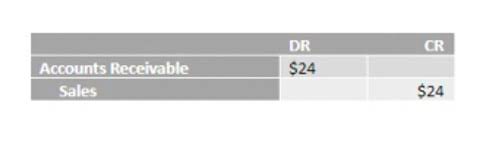
It is done by debiting unearned revenue (or prepaid revenue) and crediting revenue. The revenue recognition principle requires that the revenue must be realized or realizable in order to be recognized in accounting records. Analysts, therefore, prefer that the revenue recognition policies for one company are also standard for the entire industry. Having a standard revenue recognition guideline helps to ensure that an apples-to-apples comparison can be made between companies when reviewing line items on the income statement.

Accounting events

Realization is required to report on financial performance and make accurate revenue forecasts. You have to know which revenue has been earned bookkeeping and can thus be reported on the income statement for a specific accounting period. If you report sales bookings as revenue, you risk overstating your revenue for that accounting period and basing business decisions on an inaccurate cash flow assessment.
Recent Changes: ASC 606

If a customer purchases a one-year subscription for $1,200, the company would recognize $100 in revenue each month, reflecting the delivery of services over time. It is a cornerstone of accrual accounting together with the matching principle. Together, they determine the accounting period in which revenues and expenses are recognized.1 In contrast, the cash accounting recognizes revenues when cash is received, no matter when goods or services are sold. Revenue realization is the process through which a company collects revenue from its sales or services in accordance with accounting standards (e.g., GAAP). It’s a crucial aspect of financial reporting, as it affects a company’s profitability and cash flow.
When Contract Modifications Impact Revenue Recognition
- It allows for improved comparability of financial statements with standardized revenue recognition practices across multiple industries.
- Realization concept requires that revenue shall not be recognized on the basis of cash receipts but should rather be recognized on accruals basis.
- Accrued revenue is revenue that has been earned (recognized) but not yet received (realized).
- The realization principle in accounting means that revenue is recognized before cash is received.
Calculating the exact amount of revenue you’ve realized can be done using different methods depending on the nature of the contract or sale. In the above case, the sale of the truck is related to the sale of goods, and the maintenance contract is the continuous service to be provided to the customer for a one year period. In the case of services or investment, it is to be recognized when income is accrued. Revenue has to be recognized only when sales are actually made, not when an order is received or simply entered into. Motors PLC delivers the cars to the respective customers within 30 days upon which it receives the remaining 80% of the list price. Before we can talk of realization or recognition, we need to understand what an accounting event is.

An accounting method where revenue and expenses are recorded when they are earned or incurred, regardless of when cash transactions occur. Auditors pay close attention to the realization principle when deciding whether the realization of revenue definition accounting revenues booked by a client are valid. They also look at all aspects of the requirements for revenue recognition, as outlined within the applicable accounting framework.
- Keep reading to learn about the implications of revenue recognition, how to handle common pitfalls when recording revenue, and which GAAP guidelines pertain to revenue recognition.
- According to the revenue recognition principle, revenue can be recognized when it is earned and the entity is entitled to receive it.
- Being off by just a small margin can have a significant impact on your actual realization rate.
- Any event that has an economic effect on the assets, liabilities or equity must be recorded.
- This method is used primarily for long-term contracts, such as in the construction industry, where revenue is recognized as the project progresses.
